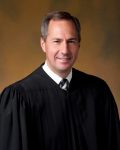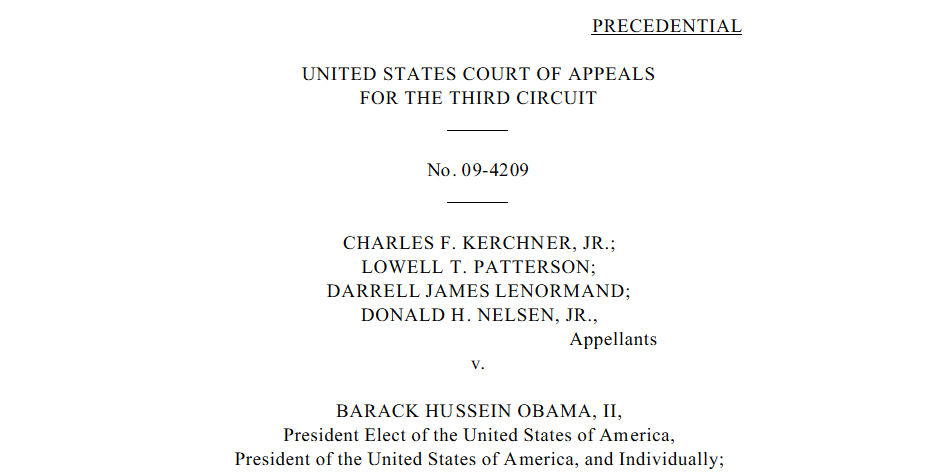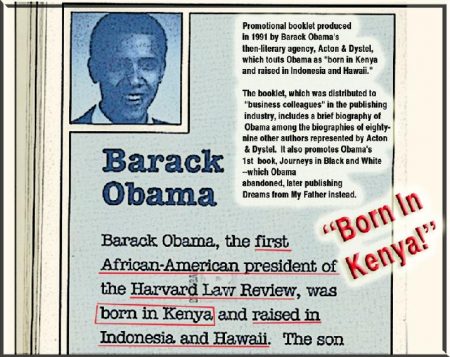OMITTED, BY ELLIPSIS, CRUCIAL PART OF RULE USED AGAINST ELIGIBILITY ATTORNEY
by Sharon Rondeau
 (Feb. 4, 2017) — Last Tuesday, President Donald Trump nominated Tenth Circuit Court of Appeals Judge Neil Gorsuch for the seat on the U.S. Supreme Court vacated by the death of Associate Justice Antonin Scalia last February.
(Feb. 4, 2017) — Last Tuesday, President Donald Trump nominated Tenth Circuit Court of Appeals Judge Neil Gorsuch for the seat on the U.S. Supreme Court vacated by the death of Associate Justice Antonin Scalia last February.
Gorsuch was among three reported top contenders on a “short list,” all of whom were nominated to appellate judgeships by then-President George W. Bush.
The remaining two judges are Thomas M. Hardiman of the Third Circuit Court of Appeals in Philadelphia and William H. Pryor, Jr. of the 11th Circuit Court of Appeals in Atlanta, GA.
Federal judges must receive confirmation from the U.S. Senate before their service can begin, although if moving from a U.S. District Court to the appellate level, reconfirmation is not required.
Media sources have reported that both Pryor and Hardiman could remain under consideration by Trump for future Supreme Court appointments.
On Friday, The Post & Email spoke with New Jersey-based attorney Mario Apuzzo, who represented CDR Charles F. Kerchner, Jr. (Ret) and three other plaintiffs in challenging the constitutional eligibility of Barack Hussein Obama on January 20, 2009, the day he took office.
Doubts as to Obama’s eligibility arose during the 2008 campaign cycle when various news reports, some of which were issued domestically, reported him as having been born in Kenya or Indonesia. Article II, Section 1, clause 5 of the U.S. Constitution requires the president and commander-in-chief of the military to be a “natural born Citizen.”
The term of art was included in the final draft of the Constitution in the summer of 1789 reportedly after little discussion and without precise definition for future generations.
While some constitutional scholars believe that a birth on U.S. soil, without respect to the parents’ citizenship, is sufficient to render a person “natural born,” others believe that the meaning of the term is “born in the United States to U.S.-citizen parents.”
Conversely, some have argued that a birth anywhere in the world to one U.S.-citizen parent qualifies a person as a natural born Citizen, as was said to be the case with Texas Sen. Ted Cruz.
Although Obama’s biography, published in 1991 by his then-literary agent, stated that he was “born in Kenya and raised in Indonesia and Hawaii” as discovered by Breitbart in 2012, at some point before he announced his presidential aspirations, Obama claimed to have been born in Honolulu, HI on August 4, 1961.
Obama’s parents have been said to be a non-U.S.-citizen father from Kenya, Barack Hussein Obama Sr., and a U.S.-citizen mother from Kansas, Stanley Ann Dunham. Both were reportedly attending the University of Hawaii and met in a Russian-language class.
On at least one occasion, however, Obama claimed that his parents met in Selma, AL during a civil rights march in 1965. Different life narratives state that his parents were married before he was born and that Dunham was “very young and very single” when her son was born.
 Unbeknownst to Apuzzo and his clients when filing the case in 2009 was the conclusion that would be reached three years later by a criminal investigative team from Maricopa County, AZ confirming others’ claims that the image released by the White House in April 2011 representing Obama’s “long-form” birth certificate from Hawaii is a “computer-generated forgery.”
Unbeknownst to Apuzzo and his clients when filing the case in 2009 was the conclusion that would be reached three years later by a criminal investigative team from Maricopa County, AZ confirming others’ claims that the image released by the White House in April 2011 representing Obama’s “long-form” birth certificate from Hawaii is a “computer-generated forgery.”
Also found to be fraudulent by the same investigation is Obama’s Selective Service registration form, the original of which investigators were denied access by Selective Service System Director Lawrence Romo, an Obama appointee.
The investigation continued through December 2016, when a third and final press conference revealed that two well-respected forensic analysts agreed that “nine points of forgery” originating with another Hawaii birth certificate of the same era belied the White House’s claim to have issued an authentic document.
In his interview with The Post & Email, Apuzzo said that attorneys from the U.S. Department of Justice representing Obama in not only his litigation, but also the many others which ensued during Obama’s first years in office, could have simply released Obama’s original birth certificate purportedly held by the Hawaii Department of Health.
By January 2010, Apuzzo’s case, Kerchner, et al v. Obama, et al, No. 09-4209, had been argued and decided at the U.S. District Court trial level and filed on appeal to the Third Circuit Court of Appeals.
In his brief to the Third Circuit, Apuzzo argued that the U.S. District Court decided in error that the case presented a “political question” and that his clients had no legal standing. Apuzzo also contended that the federal court had denied the plaintiffs their Fifth Amendment right for an opportunity to “prosecute their claims against the defendants.”

On Friday, Apuzzo recounted that Hardiman voted in agreement with two other judges to deem his appeal on the issue of standing “frivolous,” when neither the lower court nor opposing counsel had argued that the plaintiffs’ position on what gave them standing was frivolous, and to suggest the imposition of financial sanctions for attorneys’ fees and costs incurred by defendants in a July 2, 2010 Order to Show Cause.
Following Apuzzo’s submission of a 95-page response brief, the panel discharged the Order to Show Cause based on what it said were Apuzzo’s “efforts to research the applicable law on standing.”
Apuzzo filed a petition for a writ of certiorari with the U.S. Supreme Court, which declined to grant it. A number of other “eligibility” cases involving Obama received the same treatment.
Of the Third Circuit’s opinion and suggested sanctions against him, Apuzzo told us:
The case involved the question of standing. It was an unprecedented case because we had never had a challenge to Article II eligibility for a presidential candidate or president-elect, so there was no precedent or U.S. Supreme Court case that we could follow on the question of standing. So this was a completely new area of the law.
There had been some other cases prior to the Kerchner case, but Kerchner was unique because it was filed after Obama had been elected but before he was sworn in.
When we were in the trial court, there was no question about whether or not the suit was frivolous. The defendants didn’t even argue that there was anything frivolous about it. When the lower court dismissed it because of standing and political question, of course we wanted to take the matter to the Supreme Court. The only way to do that is to appeal.
So we filed the appeal. The documents speak for themselves. I made very sound and cogent arguments with respect to standing: that my clients had a right under the Fifth and 14th Amendments to seek to protect themselves, their life, liberty and property, from someone who might not be a natural born Citizen who wants to be president. The Founding Fathers put that clause there because they thought it would be a danger to the American people to have someone who is president and commander-in-chief who isn’t a natural born Citizen. So it goes to their safety and protection. If the Founding Fathers thought that this was something that could damage the American people, then people should have the right to bring forth an action to protect themselves in that regard.
So I said it was an injury if the person is not a natural born Citizen.
There was the Berg case heard in the Third Circuit. You can read that case. I argued that the case was distinguishable, that he made completely different arguments. He filed it early, before Obama was even elected. It was a completely different case.
In my 95-page response, I explained how that case is completely different from the Kerchner case. I thought we made a very good argument in the Third Circuit. To my shock, not only did they deny the appeal saying, “affirmed,” but they said that I filed a frivolous appeal and that I have to show cause why I shouldn’t be sanctioned. Nobody had argued that in the case. In the trial court, the defendants didn’t argue that, nor did they argue it on appeal. But the court on its own said it was frivolous and asked me why I shouldn’t be sanctioned.
I was absolutely shocked. Something else that they did was that they raised the question as to whether or not I had violated a rule of ethics in New Jersey. If the party in a case knows about controlling law, when you’re filing an appeal, if you know that that particular decision exists, you have an obligation to bring it to the attention of the court. The states make the ethics rules, and each state has different rules.
[Editor’s Note: In its opinion, the three-judge panel wrote:
In my opening brief, I had said that there were other cases throughout the United States that decided the issue of standing but they were distinguishable. This case involved something very specific: presidential eligibility. I said that there were other cases already decided that said that the plaintiffs did not have standing on Obama’s eligibility. I didn’t say, “Berg,” which was their own case, and when the defense did their brief, they said, “Oh, the Berg case.” So when I did my reply brief, I argued the Berg case, but I said it was distinguishable and why.
When the court issued its decision, it said I might have violated the rule because I didn’t tell the court about the Berg case. In New Jersey, RPC 3.3a-3, New Jersey Rules of Professional Conduct, “Candor Toward the Tribunal.” It says if the court is not advised of a decision, it could be found to be a failure to be candid with the court. But it says that either the plaintiffs’ attorney has to advise them or the defendants’ attorney has to advise them. If that didn’t happen and the court is not aware of it, then it could be a violation.
But when they cited the New Jersey rule, they cut off the language of the rule.
RPC 3.3 Candor Toward the Tribunal
(a) A lawyer shall not knowingly:
(1) make a false statement of material fact or law to a tribunal;
(2) fail to disclose a material fact to a tribunal when disclosure is necessary to avoid assisting an illegal, criminal or fraudulent act by the client;
(3) fail to disclose to the tribunal legal authority in the controlling jurisdiction known to the lawyer to be directly adverse to the position of the client and not disclosed by opposing counsel;
(4) offer evidence that the lawyer knows to be false. If a lawyer has offered material evidence and comes to know of its falsity, the lawyer shall take reasonable remedial measures; or
(5) fail to disclose to the tribunal a material fact knowing that the omission is reasonably certain to mislead the tribunal, except that it shall not be a breach of this rule if the disclosure is protected by a recognized privilege or is otherwise prohibited by law.
If you look at their decision, this is what they cut off: “…and not disclosed by opposing counsel;…”
The quote is, “(a) A lawyer shall not knowingly:…fail to disclose to the tribunal legal authority in the controlling jurisdiction known to the lawyer to be directly adverse to the position of the client and not disclosed by opposing counsel;..”
They cut off “and not disclosed by opposing counsel,” which it was. Not only was it disclosed by opposing counsel; I had already mentioned it in my moving brief. I didn’t mention the name, but I told them that there were cases that ruled against me. And opposing counsel mentioned it, and then I discussed it in my reply brief.
So they put this tarnish on me, which is a written opinion of the Third Circuit. I explained to them how this was totally inappropriate and improper and how they should write a corrected opinion. They cut off part of the New Jersey court rule.
I explained to them on the issue of standing that this was a whole new area of the law. The law of standing is not an easy one; you have 5-4 decisions out of the Supreme Court all the time. And the Third Circuit did not call Berg frivolous or say, “You have to show cause why we shouldn’t sanction you.”
So they threw all of this at me: that the case is frivolous, that I should have known I had no standing, and that I committed some kind of ethical violation. I couldn’t believe it.
I sent them a 95-page brief and said, “OK, Court, if you’re going to sanction me, then I want a hearing where I can come in to court and defend myself. I want to see what efforts the defendants made to mitigate their damages. They’re going to argue that they incurred legal expenses, but all they had to do on the issue of whether or not Obama was born in the United States was to show a birth certificate. From Day One, if they had submitted the birth certificate in to court, that argument would have been res judicata.
—————
Editor’s Note: This post was updated on February 5, 2017 at 11:13 a.m. EST.
More of The Post & Email’s interview with Apuzzo will be published in a subsequent article in the near future.



@Robert Laity,
There is absolutely nothing in Minor v. Happersett that says that one MUST be born to parents who are both US Citizens in order to be a NBC.
What the Minor decision does do is it acknowledges that those born in the US to two US Citizens are NBCs.
To my knowledge, no court has ever said that people born to two US citizens are not NBCs, hence, there has never been a ruling that is in conflict with the Minor acknowledgement that those born in the US to two citizen parents are NBCs.
As far as whether two citizen parents are required for NBC, the Minor Court clearly states that they would not address the issue.
The Minor court writes – Some authorities go further and include as citizens children born within the jurisdiction without reference to the citizenship of their
parents. As to this class there have been doubts, but never as to the first. For the purposes of this case, it is not necessary to solve these doubts.
Mere Birth in the US does NOT suffice to make one a “Natural Born Citizen”. One also MUST be born to Parents who are BOTH US Citizens themselves. This is Supreme Court precedent in Minor v Happersett and has been reaffirmed several times by SCOTUS.
Frivolous? I wonder what his definition of natural born citizen is. Elana Kagan slapped down 3 challenges to Obama’s eligibility and that won her a seat on the supreme court so that is how it is done?
Oppose the challenges to Obama occupying the White House and get a life time appointment.